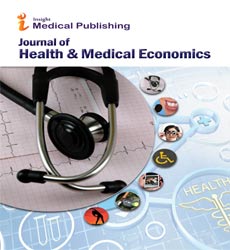My Three Aims
Masahito Kobayashi
DOI10.21767/2471-9927.10002
Masahito Kobayashi*
Department of Economics, Yokohama National University, Japan
- *Corresponding Author:
- Dr. Masahito Kobayashi
Department of Economics
Yokohama National University
Japan
Tel: 81 45-339-3544
E-mail: kobayashi.masahito@gmail.com
Received Date: September, 07 2015; Accepted Date: September, 14 2015; Published Date: September 26, 2015
Citation: Kobayashi M. My Three Aims. J Health MedEcon. 2015, 1:1.
Introduction
It is an honor for me to be invited to work with the Editor-in-Chief, Co-Editor-in-Chief and the other Members of the Editorial Board of the Journal of Health and Medical Economics.
I have three aims as an Editorial Board Member.
First, I want to make a contribution to the Journal of Health and Medical Economics as a theoretical econometrician. Most empirical econometricians are fascinated by the straightforwardness of natural experiments and are eager to find good instrumental variables to distinguish causality from correlation rigorously. This is undeniably the most powerful methodology in econometrics. However, we have many other useful statistical methods that are not compatible with instrumental variables, such as qualitative choice and survival analysis, because of non-linearity.
I would be most happy if I could suggest alternative efficient econometric methods, preferably easier to use, to contributors to the journal.
Second, I would like to work as an interpreter between different disciplines. I have some experience of joint work with researchers in Economics and the Health and Medical Sciences. These disciplines have their own languages and implicit, sometimes unconscious, rules, which make good communication difficult with researchers outside their fields. A good statistician, and a good editorial board member, should work as a good interpreter of their languages and rules to make submitted papers more readable.
Third, I hope that the Journal of Health & Medical Economics will be an outlet of research for young researchers in Japan, which presently has only a few health and medical econometricians. It is a little strange because statistical analysis, the elder brother of econometrics, has a long-established role in health and medical sciences in Japan.
The first rumored explanation for this is that accessibility to health and medical data collected by the Government is restricted too strictly. Only researchers in government sectors can use original data sets, and researchers in universities are rarely allowed to use them. It is even rumored that researchers who are critical of government health and medical policies are never allowed to use them. The second rumored reason is that the government policy process in Japan is not evidence based, which is closely related to the first point. Thus, with no evidence-based policy, there is no data analysis.
I hope that these rumored explanations are untrue, because it is totally unreasonable.
With fewer data and policy constraints, I believe that we will be able to have more health and medical econometricians in Japan.
Open Access Journals
- Aquaculture & Veterinary Science
- Chemistry & Chemical Sciences
- Clinical Sciences
- Engineering
- General Science
- Genetics & Molecular Biology
- Health Care & Nursing
- Immunology & Microbiology
- Materials Science
- Mathematics & Physics
- Medical Sciences
- Neurology & Psychiatry
- Oncology & Cancer Science
- Pharmaceutical Sciences
